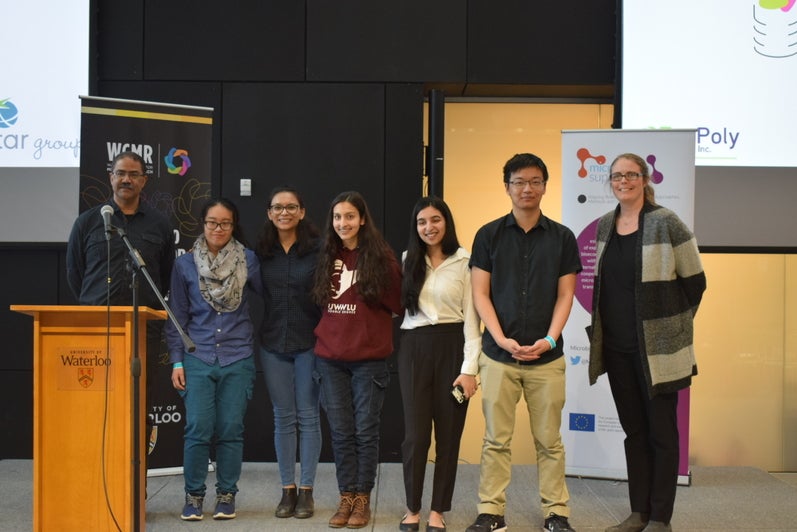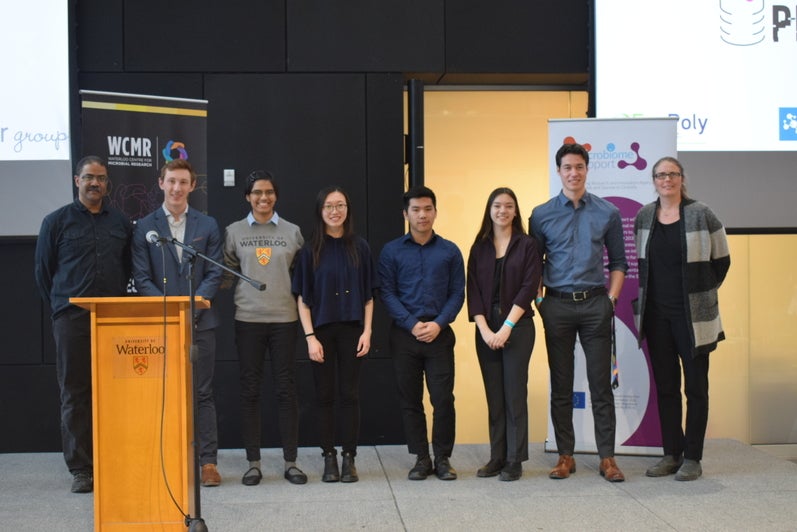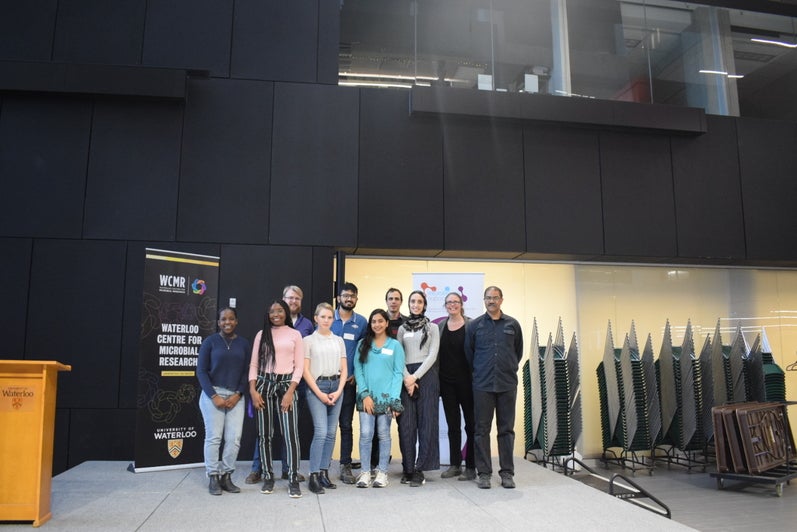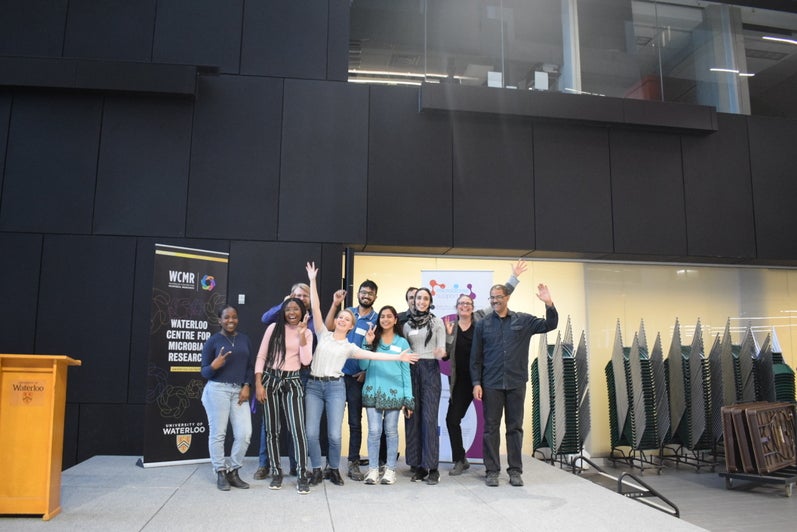The WCMR event Hack the Plastics, had a successful weekend at the University of Waterloo on Friday, Saturday and Sunday (Feb 28-Mar 1). Photo gallery.
Students from many different disciplines and Universities and Colleges from around Ontario came out to spend the weekend coming up with ways to solve problems related to single-use plastics and incorporating microbes into their solution.
Teams were very diverse, with everyone from bioengineers to graphic designers, as they worked on their technical idea, their business plan, and how to sell their idea in the final pitch competition.
The weekend started off on Friday evening with an introduction by Murray McLaughlin about the opportunities in the bioeconomy. Students then mingled, formed their teams and met all of the other participants.
Saturday included lots of project hacking and mentors from industry and academia circulated to provide advice to teams. We also featured two fantastic workshops, one on Ideation led by Concept's Pablo Eder, and another on Storytelling led by Laura Fong of the Stratford School of Interaction Design and Business.
On Sunday, our large panel of judges had a hard time coming up with the final 6 teams who would compete on the big stage in front of everyone during the final pitch competition.
Our final winning teams were:
1st prize – bioRCT (bioreacte) – Integrated bioreactor concept that used modified bacterial strains to break PET plastic down to small molecules, with CO2 captured by algae and valuable products generated. Jonathan van der Veen, Lawrentina D'Souza, Jasmin Zhang, Hugh Dawson, Kuan-Chieh Chao, and Laurel Pierroz-Wong
2nd prize – Sort Scan Save the Plastic – Identify bioplastics at the municipal level with a doping process to highlight the bioplastic material, sort this plastic out of the regular waste stream, then degrade the sorted bio-plastics and convert to valuable compounds to resell to industries. Fiona La, Kathy Tran Vo, Saroosh Ashraf, Jordan Lam, and Diana Khater
3rd prize – BioCycle – Identified a waste stream of menstrual products which are already collected in bathrooms. With a redesigned collection bin, they would utilize bioreactors to degrade the segregated product and turn the non-biodegradable plastic into usable carbon-based industrial dyes and biosurfactants. Kshin Patel, Krystal Yang, Nathan Rudd, Richard Xie, Prikanksha Shah, and Anjali Rawal

Hack the Plastics 2020 image gallery
View some of the pictures taken at the event! Click on the image preview to view the image in full resolution.







